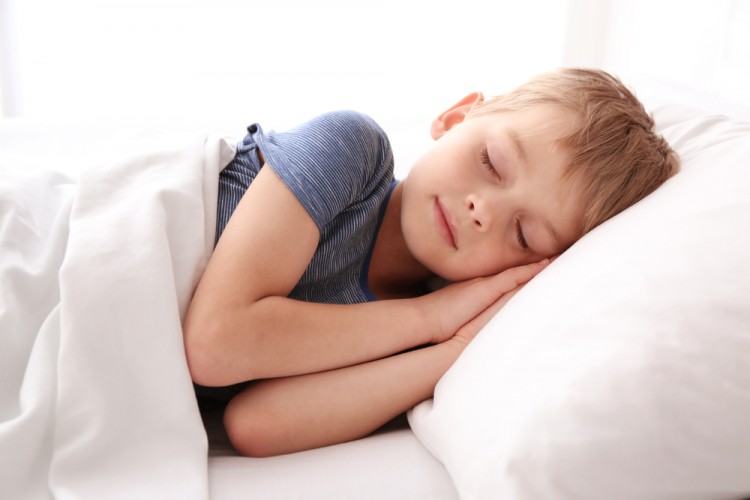Molly asked
Is melatonin really safe to give my kids to help them sleep when needed?
Answer
 Most experts agree that overall safety and efficacy of melatonin is not firmly established in children under 18 years old. As there is an absensce scientific evidence for benefit, and due to the unknown potential for side effects, melatonin is generally not recommended for routine use in pediatric patients.
Most experts agree that overall safety and efficacy of melatonin is not firmly established in children under 18 years old. As there is an absensce scientific evidence for benefit, and due to the unknown potential for side effects, melatonin is generally not recommended for routine use in pediatric patients.
How Melatonin Works
Supplemental melatonin has been shown to influence certain hormones in adults (e.g., decreased testosterone levels and increased prolactin levels). This is concerning for children as they are not fully developed and use of melatonin may have a negative effect on developmental hormones. There are scenarios where melatonin may be recommended however, which will be discusses below.
Melatonin is a hormone naturally produced by our bodies in response to darkness which helps us sleep. This happens in the pineal gland, a small gland in the brain. Levels of melatonin peak and maintain high levels as it gets dark and during sleep, and decrease as the sun starts to rise or in response to light. Light decreases the amount of melatonin one’s body produces. Interestingly, the darker one can make their sleep space (bedroom) the more natural melatonin they will produce.
Melatonin is important for sleep regulation and maintaining sleep. Melatonin is found in some fruits, vegetables, grains and meats, but it can also be bought over the counter in the supplement section of a pharmacy, grocery store or vitamin/health store. Melatonin can be synthetic (manmade) or come naturally from animal’s pineal glands. Animal derived melatonin is not as safe an option because people run the risk of developing a virus. Manmade melatonin supplements mimic the molecular structure of melatonin and therefore are generally considered safer.
In teenagers, melatonin is released much later in the night than in adults, and this is one reason teens may have sleep issues. Melatonin needs to be avoided in pregnancy and while breastfeeding or trying to conceive a child. As mentioned, it is not recommended that children and adolescents take melatonin because it could interfere with their development and hormone levels. Doctors often recommend melatonin only to adult patients with sleeping issues that involve sleep cycles, for example in people who travel to different time zones for work, truck drivers who drive all night, night shift employees, and people who are blind.
Is Melatonin Recommended For Children?
Some pediatricians recommend melatonin for their young patients who suffer with insomnia due to autism or to attention deficit hyperactivity disorder (ADHD) and there are studies that support this use. It may also benefit children with developmental disabilities or visual impairment.
Sleep Hygiene?
Before speaking to your pediatrician about your child’s sleep problems, it is important to figure out why they are having trouble falling asleep or staying asleep. Look at all the factors surrounding them during their afternoon and evening hours. Are they being over-stimulated? Are they playing video games or watching TV before bed? Are they using cellphone close to their face? Are they stressed out about homework or school and possibly feeling anxious? Are they depressed about anything? Are they eating a healthy diet? For most kids who have sleep problems, a root cause can be found. it is important to try and figure this out and solve the root problem before turning to melatonin or other medications for sleep in children. If there are too many electronics and stimulation before bed, determine an electronic free time 1-2 hours prior to sleep.
Heavy foods should be avoided in the hours before sleep, as well as drinking too much. If the child is worried about a test or homework and feeling stressed, attempt relaxation and breathing techniques. If all strategies fail after attempting to change behaviors and habits in the home, it may be time to talk to the pediatrician about a safe dose of melatonin for your child.
Melatonin For Children
Although the evidence is conflicting, intermittent doses of melatonin may work well and would be generally safe in short, low doses. If your child’s pediatrician prescribes melatonin, the dose will be dependent on their age and size. Typically, amounts vary from 0.5 mg to 6 mg. The dose is usually taken about half hour to one hour before you hope for them to go to bed. Make sure good bedtime routines are in place. Be sure to use melatonin along with a good pre-bed routine and make sure your child has a nice dark space to sleep in. Always consult a doctor before starting yourself or your child on any over the counter medication.




